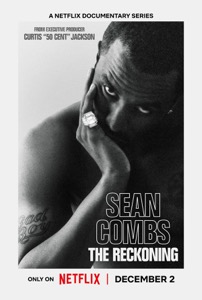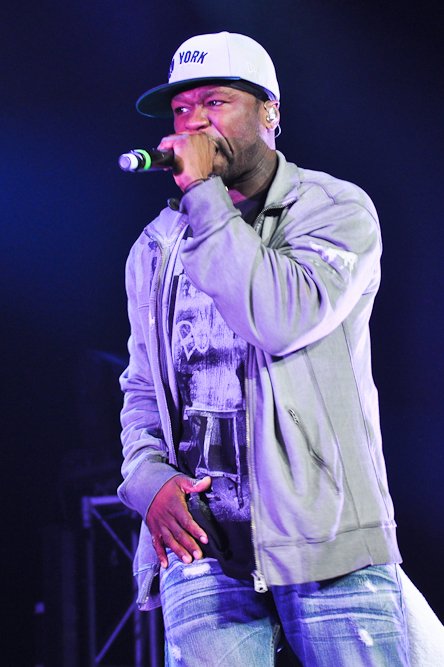Entertainment
Maren Morris Says She’s Leaving Country Music: ‘It’s Burning Itself Down’ on September 15, 2023 at 9:10 pm Us Weekly

Douglas Mason/Getty Images
Maren Morris has done her best to change country music from the inside, but she’s tired of fighting a losing battle — and she’s ready to move on.
“I thought I’d like to burn it to the ground and start over,” Morris, 33, said of country music in an interview with the Los Angeles Times published on Friday, September 15. “But it’s burning itself down without my help.”
Morris has long advocated for greater diversity in the genre, which has traditionally been a branch of the music industry dominated by white male heterosexual artists. “But the stories going on within country music right now, I’ve tried to avoid a lot of it at all costs,” she explained, noting that she’s benefitted from the dominant system as well. “I feel very, very distanced from it.”
Her new songs “The Tree” and “Get the Hell Out of Here” — released on Friday as an EP called The Bridge — are about her decision to leave country music behind. “If you truly love this type of music and you start to see problems arise, it needs to be criticized. Anything this popular should be scrutinized if we want to see progress,” she said. “But I’ve kind of said everything I can say.”
Morris has been outspoken about LGBTQ+ issues throughout her career, most famously last year when she feuded with Jason Aldean and his wife, Brittany Aldean, over gender-affirming care for young people. The drama culminated with Tucker Carlson calling Morris a “lunatic country music person” during an interview with Brittany, 36. Morris later sold T-shirts bearing the phrase to benefit GLAAD’s Transgender Media Program and the Trans Lifeline.
Many fans think Morris’ new video for “The Tree” is partly a reference to Jason’s controversial song “Try That in a Small Town,” which some critics believe promotes violence. The clip shows her walking out of a small town where there are signs reading “Don’t Tread on Me” and “Go Woke Go Broke.”
“Try That in a Small Town” recently crossed over to the Billboard pop chart, hitting No. 1 on the Hot 100, but Morris doesn’t think that means people actually like the track.
“People are streaming these songs out of spite,” she said. “It’s not out of true joy or love of the music. It’s to own the libs. And that’s so not what music is intended for. Music is supposed to be the voice of the oppressed — the actual oppressed. And now it’s being used as this really toxic weapon in culture wars.”
Morris, for her part, is busy creating a new album with super-producer Jack Antonoff, who’s worked with Taylor Swift, Lana Del Rey, Lorde, St. Vincent and The Chicks. She didn’t specify whether that means her new music will have more of a pop vibe, but she’s excited to have “freedom” now that she doesn’t have to worry about fitting in with the rigid formula of country radio.
“I’m still writing, so the record’s not done. But there’s a lot of things going on musically in it — quirky jam-band moments to, like, prog rock,” she teased. “It’s so fun, and I feel like my old self back in this space of writing songs I love with people I love.”
Douglas Mason/Getty Images Maren Morris has done her best to change country music from the inside, but she’s tired of fighting a losing battle — and she’s ready to move on. “I thought I’d like to burn it to the ground and start over,” Morris, 33, said of country music in an interview with the
Us Weekly Read More
Entertainment
What We Can Learn Inside 50 Cent’s Explosive Diddy Documentary: 5 Reasons You Should Watch

50 Cent’s new Netflix docuseries about Sean “Diddy” Combs is more than a headline-grabbing exposé; it is a meticulous breakdown of how power, celebrity, and silence can collide in the entertainment industry.
Across its episodes, the series traces Diddy’s rise, the allegations that followed him for years, and the shocking footage and testimonies now forcing a wider cultural reckoning.

1. It Chronicles Diddy’s Rise and Fall – And How Power Warps Reality
The docuseries follows Combs from hitmaker and business icon to a figure facing serious criminal conviction and public disgrace, mapping out decades of influence, branding, and behind-the-scenes behavior. Watching that arc shows how money, fame, and industry relationships can shield someone from scrutiny and delay accountability, even as disturbing accusations accumulate.

2. Never-Before-Seen Footage Shows How Narratives Are Managed
Exclusive footage of Diddy in private settings and in the tense days around his legal troubles reveals how carefully celebrity narratives are shaped, even in crisis.
Viewers can learn to question polished statements and recognize that what looks spontaneous in public is often the result of strategy, damage control, and legal calculation.
3. Survivors’ Stories Highlight Patterns of Abuse and Silence
Interviews with alleged victims, former staff, and industry insiders describe patterns of control, fear, and emotional or physical harm that were long whispered about but rarely aired in this detail. Their stories underline how difficult it is to speak out against a powerful figure, teaching viewers why many survivors delay disclosure and why consistent patterns across multiple accounts matter.
4. 50 Cent’s Approach Shows Storytelling as a Tool for Accountability
As executive producer, 50 Cent uses his reputation and platform to push a project that leans into uncomfortable truths rather than protecting industry relationships. The series demonstrates how documentary storytelling can challenge established power structures, elevate marginalized voices, and pressure institutions to respond when traditional systems have failed.
5. The Cultural Backlash Reveals How Society Handles Celebrity Accountability
Reactions to the doc—ranging from people calling it necessary and brave to others dismissing it as a vendetta or smear campaign—expose how emotionally invested audiences can be in defending or condemning a famous figure. Watching that debate unfold helps viewers see how fandom, nostalgia, and bias influence who is believed, and why conversations about “cancel culture” often mask deeper questions about justice and who is considered too powerful to fall.
Entertainment
South Park’s Christmas Episode Delivers the Antichrist

A new Christmas-themed episode of South Park is scheduled to air with a central plot in which Satan is depicted as preparing for the birth of an Antichrist figure. The premise extends a season-long narrative arc that has involved Satan, Donald Trump, and apocalyptic rhetoric, positioning this holiday episode as a culmination of those storylines rather than a stand‑alone concept.
Episode premise and season context
According to published synopses and entertainment coverage, the episode frames the Antichrist as part of a fictional storyline that blends religious symbolism with commentary on politics, media, and cultural fear. This follows earlier Season 28 episodes that introduced ideas about Trump fathering an Antichrist child and tech billionaire Peter Thiel obsessing over prophecy and end‑times narratives. The Christmas setting is presented as a contrast to the darker themes, reflecting the series’ pattern of pairing holiday imagery with controversial subject matter.
Public and political reactions
Coverage notes that some figures connected to Donald Trump’s political orbit have criticized the season’s portrayal of Trump and his allies, describing the show as relying on shock tactics rather than substantive critique. Commentators highlight that these objections are directed more at the depiction of real political figures and the show’s tone than at the specific theology of the Antichrist storyline.
At the time of reporting, there have not been widely reported, detailed statements from major religious leaders focused solely on this Christmas episode, though religion-focused criticism of South Park in general has a long history.
Media and cultural commentary
Entertainment outlets such as The Hollywood Reporter, Entertainment Weekly, Forbes, Slate, and USA Today describe the Antichrist arc as part of South Park’s ongoing use of Trump-era and tech-world politics as material for satire.
Viewer guidance and content advisory
South Park is rated TV‑MA and is intended for adult audiences due to strong language, explicit themes, and frequent use of religious and political satire. Viewers who are sensitive to depictions of Satan, the Antichrist, or parodies involving real political figures may find this episode particularly objectionable, while others may view it as consistent with the show’s long‑running approach to controversial topics. As with previous episodes, individual responses are likely to vary widely, and the episode is best understood as part of an ongoing satirical series rather than a factual or theological statement.
Entertainment
Sydney Sweeney Finally Confronts the Plastic Surgery Rumors

Sydney Sweeney has decided she is finished watching strangers on the internet treat her face like a forensic project. After years of side‑by‑side screenshots, “then vs now” TikToks, and long comment threads wondering what work she has supposedly had done, the actor is now addressing the plastic surgery rumors directly—and using them to say something larger about how women are looked at in Hollywood and online.

Growing Up on Camera vs. “Before and After” Culture
Sweeney points out that people are often mistaking normal changes for procedures: she grew up on camera, her roles now come with big‑budget glam teams, and her body has shifted as she has trained, aged, and worked nonstop. Yet every new red‑carpet photo gets folded into a narrative that assumes surgeons, not time, are responsible. Rather than walking through a checklist of what is “real,” she emphasizes how bizarre it is that internet detectives comb through pores, noses, and jawlines as if they are owed an explanation for every contour of a woman’s face.
The Real Problem Isn’t Her Face
By speaking up, Sweeney is redirecting the conversation away from her features and toward the culture that obsesses over them.
She argues that the real issue isn’t whether an actress has had work done, but why audiences feel so entitled to dissect her body as public property in the first place.
For her, the constant speculation is less about curiosity and more about control—another way to tell women what they should look like and punish them when they do not fit. In calling out that dynamic, Sweeney isn’t just defending herself; she is forcing fans and followers to ask why tearing apart someone else’s appearance has become such a popular form of entertainment.

 Film Industry1 week ago
Film Industry1 week ago10 Ways Filmmakers Are Building Careers Without Waiting for Distributors

 Film Industry6 days ago
Film Industry6 days agoTurning One Short Film into 12 Months of Content

 Film Industry4 days ago
Film Industry4 days agoHow to Write a Logline That Makes Programmers Hit Play

 Film Industry10 hours ago
Film Industry10 hours agoAI Didn’t Steal Your Job. It Revealed Who Actually Does the Work.

















